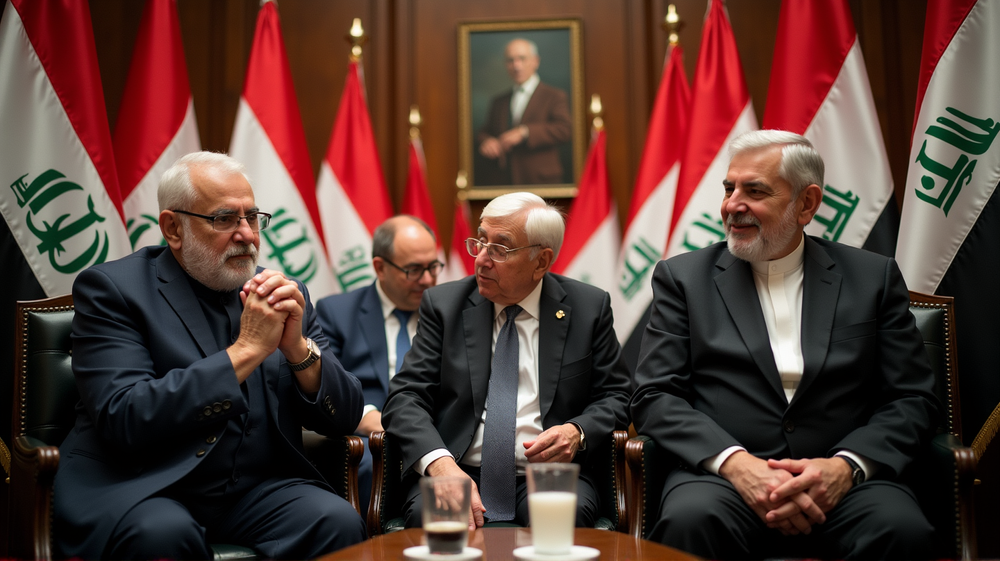In a move that underscores the lasting bond between Iran and Iraq, Iran’s newly appointed National Security Adviser, Ali Larijani, embarked on an official visit to Baghdad, reinforcing ties that have been historically pivotal in both nations’ strategic landscapes. According to Middle East Monitor, this high-level meeting has attracted attention due to its potential implications on regional dynamics.
Strengthening Historic Bonds
Iran and Iraq, sharing deep-rooted ties, continue to see each other as vital allies, especially in a region marked by shifting alliances and conflicts. The meeting between Larijani, freshly appointed by Iran’s President Masoud Pezeshkian, and Iraqi National Security Adviser Qasim al-Araji, marks not just a diplomatic ritual but a statement of unity and mutual dependency.
A Diplomatic Journey
Larijani’s visit commenced in the bustling heart of Baghdad, with no publicized agenda length, hinting at potentially extensive discussions behind closed doors. His prior experience as Iran’s National Security Adviser during 2005-2007 positions him as a figure deeply familiar with the delicate balance of Middle Eastern geopolitics.
The Political Relevance of Tehran
The collaborative dialogue highlights Iraq’s consistent portrayal of Iran as a crucial political and strategic partner. In recent years, various governments in Baghdad have leaned on Tehran’s influence to navigate internal and external pressures, demonstrating the prowess of Iran’s soft power in the region.
Iraq’s Strategic Calculations
These ongoing regional developments come at a moment of complexity for Iraq, where new alliances and threats shape its foreign policy agenda. Maintaining and expanding its relationship with Iran is seen as a strategic necessity, as Iraq seeks stability in a sometimes volatile neighborhood.
Beyond the Surface
While official reports like those from INA remain scarce on the specifics of the agreement or discussions, such visits are often rife with significant undeclared undertakings. The visit promises to usher in a refreshed era of cooperation, one built upon a shared vision for future stability and prosperity in the region.
The Iran-Iraq alliance remains a cornerstone of Middle Eastern politics, one that continues to evolve with the times. With both states reaffirming their bilateral commitment, these talks potentially herald more collaborative efforts in security and beyond. The world watches closely as these discussions could pivot the stability and political landscape in the region.












